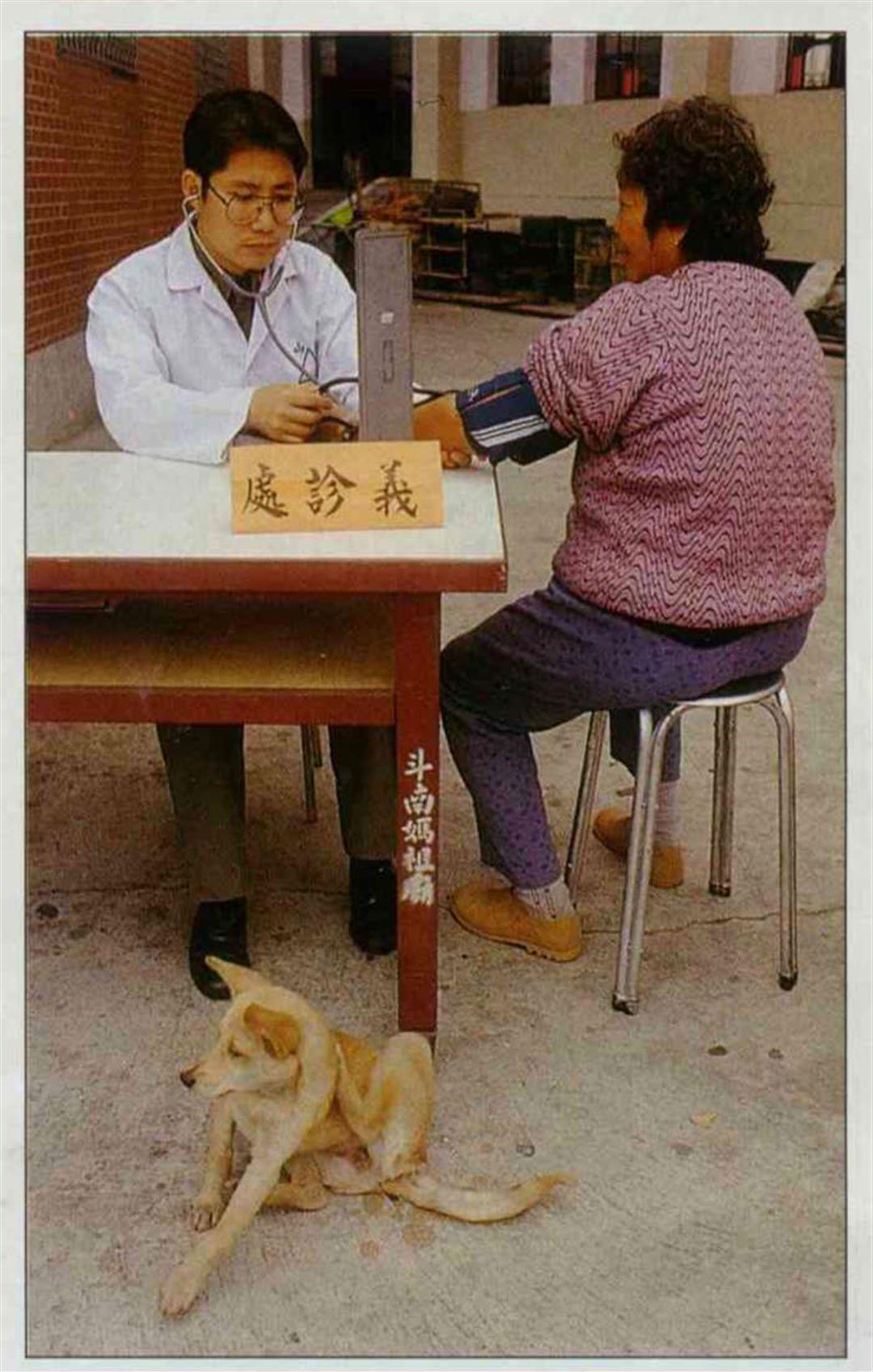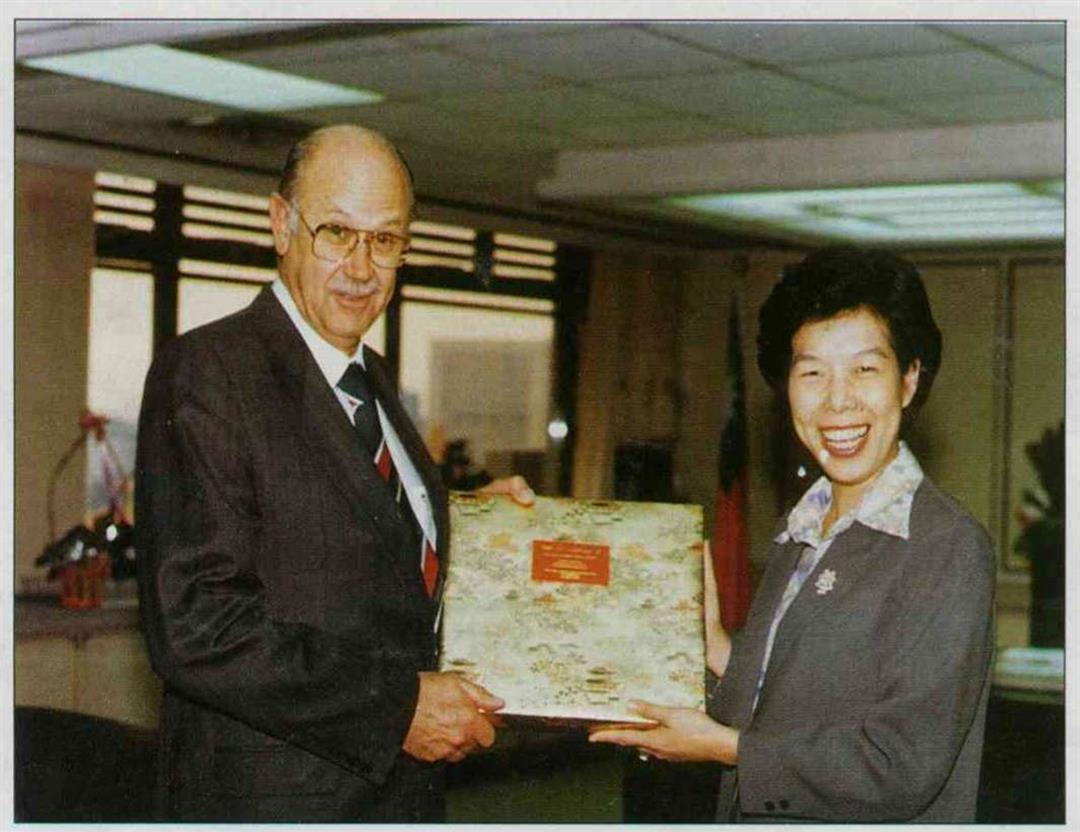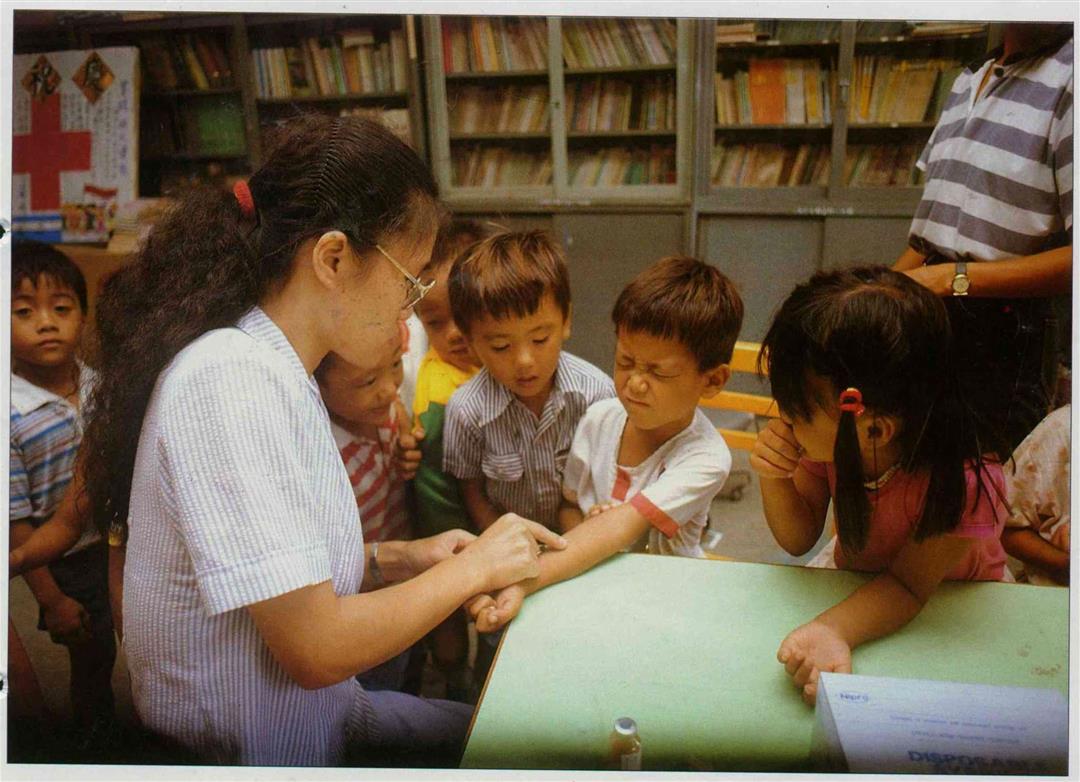From an outsider's point of view, Chang Po-ya, today 48, speaking in a gentle but clear and candid voice, appearing in a faultless skirt suit, has certainly been luckier and more fortunate than most.
She comes from a family at once both medical and political. Her father and husband are doctors, and her mother, medical Ph.D. Hsu Shih-hsien, went even farther in taking her ideals of medicine into politics, becoming mayor of Chiayi City and beginning the rise of the "Hsu faction." Today, the oldest of four daughters, Chang has not only fulfilled her mother's expectations, succeeding her as a doctor and as mayor, but has gone even a step higher, to be the highest ranking official for planning the nation's health policies.
When you talk about Chang Po-ya's political experience, you have to go back at least 20 years. At that time, she was just 27, just graduated from the Kaohsiung Medical College Department of Medicine, and had entered the Graduate School of Public Health at National Taiwan University to study for an MA. With her mother's encouragement she stood for the Legislative Yuan. Because she was still a greenhorn, she lost (though with the highest number of votes of any non-elected candidate). She then separated from politics temporarily, and went to the US to study for two years at the highly prestigious Johns Hopkins University. After, she returned to her alma mater KMC to teach, which she did for more than ten years.
As for why she decided to leave behind the professorship she had worked so hard for ten years, and throw herself into politics, she says it's really all for her mother, Hsu Shihsien.
Seven years ago, when Hsu Shih-hsien passed away, many people said that there was no successor to the Hsu faction, and that it would disintegrate. Chang Po-ya saw that the projects her mother had invested hard labor in might be cut off in midstream, and was very saddened. After wrestling with the idea, fortunately her husband and father both strenuously encouraged her, and she finally decided to carry on her mother's work, and ran for mayor of Chiayi.
Some people say that Chang was riding her mother's coattails in being elected mayor. Maybe this is not inaccurate, but after two terms as mayor, not only did she go on to be elected with the highest number of votes to the Legislative Yuan, she "shepherded" her younger sister Chang Wen-ying to "succeed" her as mayor of Chiayi. This is not something that can be achieved on someone else's coattails.
Only having been sworn in as a legislator at the beginning of last year and formally begun her life as a central level political personality, Chang Po-ya immediately collected several "titles." She was named "Planning Committeewoman for the National Affairs Conference," "President of the Alliance of Independent Legislators," a member of the Legislative Yuan's "Hou Sheng Association" and at the same time also participated in the Democratic Progressive Party party caucus as an independent, becoming a much wooed object of affection for both ruling and opposition parties.
From another angle, although she is colored as "pro-DPP," the normally intense, sweeping interpellation style of the DPP is at odds with her gentle, circumspect character. Thus she rarely accompanied the DPP into battle on the floor, and offered all kinds of opinions and performed quite actively in the KMT's "National Affairs Conference Planning Committee." Comparatively speaking, perhaps Chang's choice to enter the cabinet was not all that earth-shattering.
When they heard that Chang was the preferred choice of the Hau cabinet to be director of the DOH, the DPP and the opposition forces in Chiayi fought against the idea, believing that Chang should not abandon her "oppositional" oversight role, and that she was being "coopted" by the ruling party.
Today, with the passage of time, as for the opposition of her elders in Chiayi, she gently skates by the issue saying, "they just couldn't bear to see me leave them," and counters by raising the fact that, "in the last public opinion polls (in June of last year), 69.5% of Chiayi residents approved of my choice to enter the cabinet."
After serving as director for over eight months now, it seems that Chang has gradually entered smooth waters, returning to her original profession of medicine and public health, which makes her feel extremely excited. How Chang Po-ya will find a place for herself on this stage, and exercise real influence and ability, is a problem of common concern for herself and many others as well.

The inadequacy of base-level health care resources will be a serious test for implementing national health insurance in the future.

Actively engaging in international health care exchange is one of the main points of Chang's policies. The photo is of her and Pretoria University Professor D.M. Joubert on his visit to Taiwan in June of last year. (photo courtesy of the Department of Health)

Will our next generation be the beneficiaries of national health insurance? Or merely inherit its debts? This all depends on establishing a good financial and payment system for NHI. (photo by Arthur Cheng)